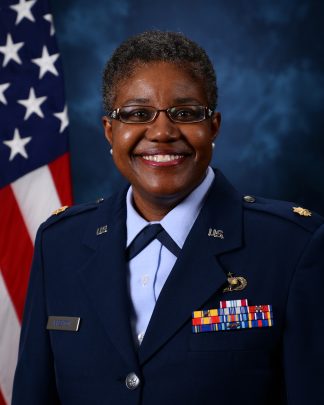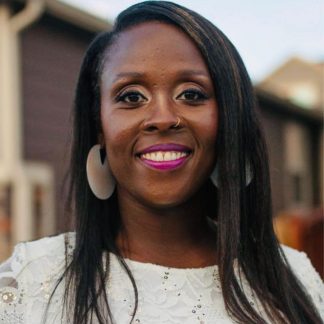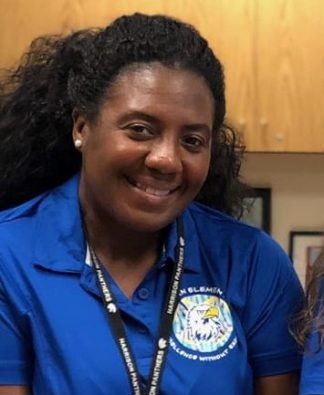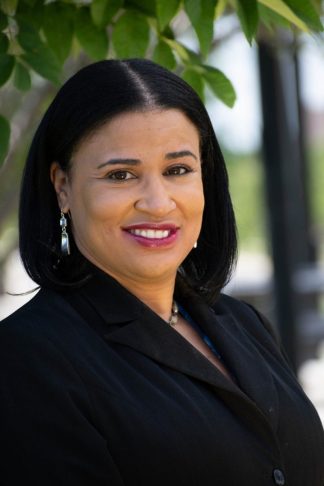I’m a professor of communication and I’m also the department chair or the department head of communication in the division of communications Humanities and Technical studies. I’m also the Special Assistant to the president for academic excellence and inclusion. So those are the three major things that I do at the college and then I try to immerse myself with the students to do what I call drive by learning because I believe learning takes place anywhere that you’re at.
So what got you into education and why do you do what you
As far as what got me into education, it was all by accident. I had no idea that I would ever teach. I got my associates in General Studies. And then I did a combination degree in Psychology and in Communication and I was in a classroom and we had to present a project. A 10-minute presentation and afterwards I got a standing ovation which I thought was strange. A couple weeks later, I got a phone call from Pikes Peak Community College, even before I finished my degree, asking me if I wanted to teach. |I didn’t think they paid enough money, so I talked to my mother about it and she said, “well how much money are you making now, honey?” I said “none”. She said “then take the job”. It was all by accident that I went into teaching, but once I got there, I found out that many of the students carry the same story that I had, struggling through education, fearful of Education because not knowing people who have gone before you and not knowing the hidden rules and behaviors. So this is when I felt like this is where my heart is. I’ve had plenty of opportunities to work other places, even for a University, but I love the Community College because it’s an open college and it’s a place where all types of people come. I like to be there because I like to spark the genius of our students. There are many times that students don’t even realize that they are Scholars until you help them to identify it.
What are some values that you live by?
One is to be culturally responsive, be able to meet people where they are and include their lived experiences in your everyday teachings, to be able to show them what is possible for them by reflecting who they are in the literature, in the teachings, in the the images everywhere. Another one is to take care of myself and give to others. I like to spark their genius and help them be scholars because when they have scholar identity, they know that they are able, capable and competent. The last one I would say is service above self. I believe that it’s my job to help other people and put their needs first because I’m there now, I got to reach back and catapult somebody forward.
What advice would you give your younger self?
I would have read more. I would have found the love for myself within myself instead of looking for other people to validate me. In a world in which many are not socially accepted, it stops us in our tracks. It stifles us, it limits us. But when you start to find yourself within, you start to find value in yourself, you start to see the talent that you have, that you’re able to then give to the world. We all have gifts and talents, but we have to find them within. It’s an inside job.
What are you excited about now in your career?
I’m really excited about there being more equity and inclusion, more opportunity and resources for people who are different. I came during the time that I was the only person of color in my division for about 8 years. It was a very lonely place for me, and I did not feel supported. I’m excited that Across the Nation we are doing so much work in the area of diversity equity and inclusion. So I’m excited about that. Moving into the future, I see our leaders looking different. Our educators are looking different, which is going to help our young people to see themselves reflected in others and are able to achieve their dreams because they are going to not only have the resources but they’re going to have the support. When you have those two things, you have opportunity.
What is one tip that you would give to someone who wants to be an educator?
The very first thing you have to do is do some deep soul-searching. How much do you really care? Never forget how you got there because we never get where we are by ourselves.
What was one tip you will give to your students as they pursue their education.
to my students, I would tell them to start building their success Entourage the moment they even begin thinking about school and that success entourage is going to be made up of people who believe in them them even when they don’t believe in themselves, I would also say that, you know, the the road is going to be difficult most definitely because you’re going to be on three different paths. There’s the beaten path The path that you are very familiar with and your most comfortable. but we have to get out of our comfort zone and go into that second path. And that second path is the path least traveled and that path is very uncomfortable and scary. We have the fear of success and we also have success threats where we have those haters, but you make those haters into your motivators and that will help you to reach your future story. Now when you listen in to all this and you know, you can’t put all the words in there. Then the one thing I probably would say is to have a future story because your future story becomes your guide arm so that you can achieve your goals.








